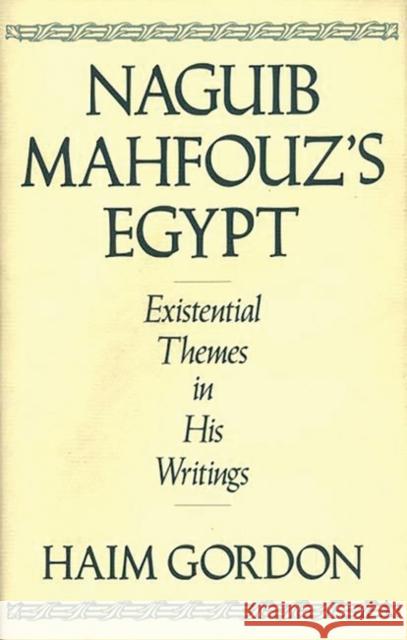Naguib Mahfouz's Egypt: Existential Themes in His Writings » książka
Naguib Mahfouz's Egypt: Existential Themes in His Writings
ISBN-13: 9780313268762 / Angielski / Twarda / 1990 / 152 str.
In November 1988 Naguib Mahfouz became the first Arab writer to receive the Nobel Prize in Literature. In this study of his writings only now being widely translated into English, Haim Gordon, an Israeli professor committed to intercultural dialogue, examines Mahfouz's work from an existential perspective. While Mahfouz is first and foremost a storyteller, he gives the reader an extra baksheesh. By telling stories of persons from all walks of life--civil servants, peasants, pimps, lawyers, and businessmen--Mahfouz depicts the existential problems that Egyptians face today. Using a Socratic approach, Gordon questioned Mahfouz directly in a series of personal interviews conducted over the past ten years. In these interviews Gordon probed the existential themes in the characters, plots, and issues raised in Mahfouz's stories. The result is an intimate and highly personal look at life in Egypt.As a very involved and critical onlooker, Haim Gordon addresses the problems facing contemporary Egyptians as portrayed in Mahfouz's stories: the Egyptian's flight from freedom and confrontation, the niggar situation of Egyptian women, the debilitating effects of poverty, the blatant oppression of political rights, the degradation of true faith and the lack of spirituality. Mahfouz's stories reveal that which western scholars unintentionally, and politicians intentionally conceal--daily life in Egypt.











